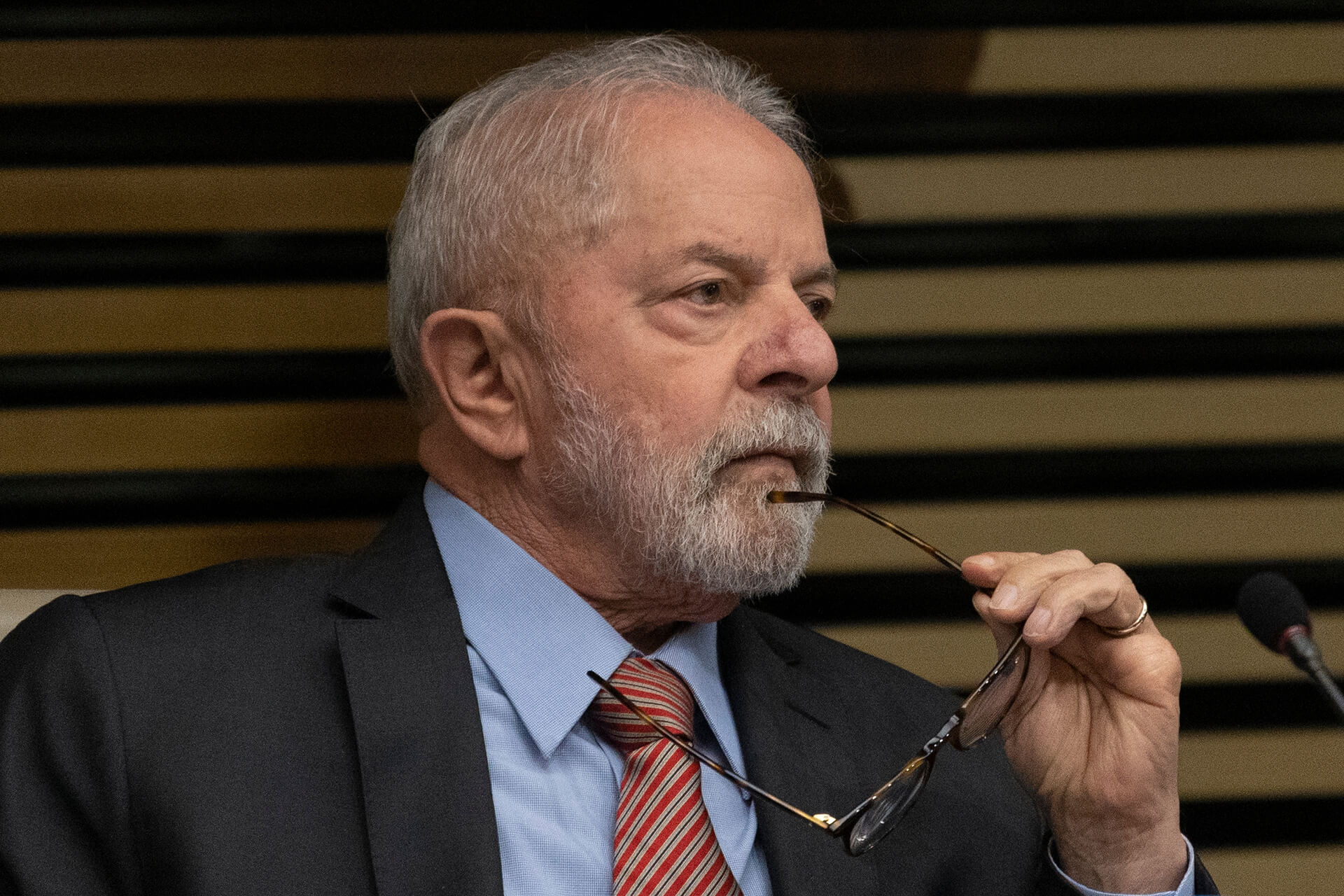In Brazil’s presidential election last month, 156 million Brazilians went to the polls to vote for the one of the two candidates who emerged from the first round of elections: former president Luiz Inácio Lula da Silva (The Workers’ Party) and the incumbent President Jair Bolsonaro (The Liberal Party). Lula won the election with 60 million votes. He returns to the Brazilian presidency for a third term. His narrow victory — 50.8% of the votes to Bolsonaro’s 49.1% — represents the triumph of a democratic agenda against the extreme right agenda. Nevertheless, the governability of Brazil under Lula’s government will be challengingly complex in a politically divided country.
Lula owes his triumph to the formation of a broad political front built during the election campaign to reverse the unpopular policies of Bolsonaro’s far-right government. The 60 million Brazilians that elected Lula hope that Brazil will be politically rejuvenated, marking the end of Bolsonaro’s effort to erode Brazilian democracy.
Lula’s comeback
Lula began his long political career as a trade union leader in the early 1980s. In 2003 he was the first leftist leader to be elected president in Brazil. After two terms in power, his government ended in 2011 with the highest popularity rating of any democratic government in Brazil’s history.
Will Brazil See Justice for the Mismanagement of the COVID-19 Pandemic?
Lula cannot however dissociate himself from the scandal known as Operation Car Wash, a corruption probe that uncovered a web of money laundering schemes involving the Brazilian state’s oil company. The unraveling of the judicial procedures that followed led to the jailing of the president in 2011. However, the Brazilian Supreme Court ultimately annulled all criminal convictions against Lula on the grounds of a series of judicial procedural errors by the prosecution.
In the extremely polarized country that Brazil has become, Many Brazilians view Lula as the leader who led Brazil to a brief period of prosperity. Lula’s administrations may boast of a number of achievements, in particular, a considerable reduction of poverty and hunger in Brazil, an increase of Brazilians’ real income, the expansion of social programs and policies, sustainable economic growth, creation of a domestic regime for environmental preservation, and the strengthening of Brazil’s multilateral vision in global debates.
Despite Lula’s many accomplishments as president, the corruption crisis involving Lula and his party provided the pretext for the rise of Bolsonaro to power as a far-right leader. In effect, Lula’s disapproval rating among the electorate still stands at approximately 46% (according to two opinion polls, Datafolha and Ipec). What saved him in the election is the fact that Bolsonaro’s disapproval rating was even higher.
Brazil Rejects Bolsonaro’s Anti-Politics
For an important percentage of citizens Lula’s return to power has sparked great optimism for the future. 44% of Brazilians believe their lives will change for the better with Lula in the presidency, compared to 21% who believe their lives will improve if Bolsonaro were to continue as president (Datafolha).
Brazil and the Latin American “pink tide”
Lula’s government will be confronted with strong opposition in the national congress. He will have to govern with a National Congress dominated by a majority of far-right senators and deputies, who will do everything in their power to block his political agenda.
The parties forming the pro-Lula alliance in the senate and the lower house do not have the numbers that will permit them to pass laws. Lula will have to negotiate with the pragmatic parties representing the center of the ideological political spectrum who are in the habit of trading their congressional support in exchange for political benefits (for example, political appointments in ministries).
Unlike other Latin American countries that have turned to the left in what analysts have called a “pink tide” in the region, there are doubts whether Lula has enough political strength to implement progressive policies. Lula won the elections with a narrow margin of 2 million votes, revealing a deeply divided country. In his victory speech, Lula focused on the urgent need to reconcile the country: “There aren’t two “Brazils, he proclaimed. “It’s time to lay down our arms”.
Brazil’s deep social divisions
The majority of Lula’s votes +came from women, the poor, and Catholics. The poorest voters, those who earn up to two minimum wages (45% of the Brazilian electorate), supported Lula, who received 61% of their vote intention, compared to 33% support for Bolsonaro. Also, Lula showed a great capacity for attracting female voters (53% of the electorate). In pre-election polls, around 52% of women declared they would vote for Lula. Only 41% expressed the intention to vote for Bolsonaro.
In recent years, there has been a marked politicization of Pentecostal churches in Brazil, the country that hosts the largest Catholic population in the world. Aligned behindBolsonaro, 62% of Evangelicals (27% of the electorate) declared their intention to vote for him, while only 32% intended to support Lula. In contrast, 55% of Catholics (52% of the electorate) showed a preference for Lula, whereas 39% declared their intention to vote for Bolsonaro.
Policy changes under Lula
The fight against hunger is urgent in a country that has experienced an increase in child malnutrition. 33 million Brazilians suffer from food insecurity. Lula’s popularity among poor Brazilians derives from his policies aimed at combating poverty and hunger, such as the creation of the cash-transfer program, Bolsa Família, which lifted over 40 million Brazilians out of poverty. Many Brazilians expect that Lula will once again innovate in his social policies, in contrast with Bolsonaro’s failure to promote policies aimed at alleviating hunger.
Lula has a strong commitment to environmental preservation. One of his campaign promises concerned the creation of a ministry to deal with the interests of indigenous peoples. Lula also guaranteed the reactivation of existing institutions and legislation to combat environmental destruction. Currently, Brazil has one of its highest deforestation rates in decades and a significant increase in land conflicts culminating in record killings of environmentalists and indigenous people.
Beyond Latin America’s Lost Decade
Brazil’s foreign policy will undergo a radical change as Lula will vigorously participate in global debates. Furthermore, Lula will bring Brazil closer to its Latin American neighbors, increase the weight of Brazil in the reform of international organizations, actively participate in the BRICS’ initiatives, and create cooperation mechanisms between Brazil and developing countries.
Challenges ahead
Since becoming president in 2018, Bolsonaro immersed Brazil in a permanent democratic crisis. In this year’s elections, Bolsonaro used the tools of the state for political purposes to influence the electoral process. In recent months, the ministry of economy increased social benefits, granted special credit for the beneficiaries of social assistance, and decreased taxes to reduce the price of gasoline and electricity. In addition to electoral abuses, Bolsonaro attacked democratic institutions in an attempt to generate public mistrust in the election results in the case of his defeat. Bolsonaro until now has not explicitly conceded the election.
After four years of democratic setbacks, politics must now seek solutions to the real-life problems that afflict most Brazilians. Lula has committed to transforming Brazil’s harsh social reality while at the same time seeking a way of appeasing the followers of Bolsonaro’s ultra-right movement. This task seems particularly difficult so long as Bolsonaro’s anti-democratic extreme right movement remains present and active in the political landscape.
The views expressed in this article are the author’s own and do not necessarily reflect Fair Observer’s editorial policy.
Support Fair Observer
We rely on your support for our independence, diversity and quality.
For more than 10 years, Fair Observer has been free, fair and independent. No billionaire owns us, no advertisers control us. We are a reader-supported nonprofit. Unlike many other publications, we keep our content free for readers regardless of where they live or whether they can afford to pay. We have no paywalls and no ads.
In the post-truth era of fake news, echo chambers and filter bubbles, we publish a plurality of perspectives from around the world. Anyone can publish with us, but everyone goes through a rigorous editorial process. So, you get fact-checked, well-reasoned content instead of noise.
We publish 2,500+ voices from 90+ countries. We also conduct education and training programs
on subjects ranging from digital media and journalism to writing and critical thinking. This
doesn’t come cheap. Servers, editors, trainers and web developers cost
money.
Please consider supporting us on a regular basis as a recurring donor or a
sustaining member.
Will you support FO’s journalism?
We rely on your support for our independence, diversity and quality.







Comment